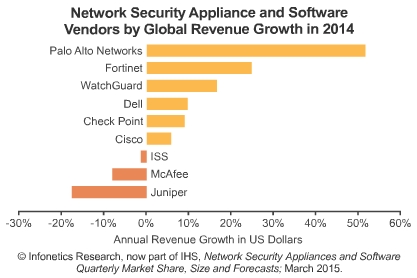Creating everything as a service (XaaS) and delivering innovation is set to be the major driver of IT development this year as XaaS becomes the preferred consumption model for enterprises, claims IT Europa in the lead up to the European Software and Solutions Summit in London on March 25th.
In its conference sessions the summit (incorporating the eighth European ISV Convention) will feature speakers from Gartner, HP, Interoute, Oracle, Salesforce.com and Verizon delivering their visions of how this changes how users buy IT, who buys it and how it is paid for.
More and more, businesses expect IT to enable their staff to work wherever they are located and via whatever device is most appropriate, says Duncan Campbell Senior Director, EG Alliances Marketing and Business Development Hewlett-Packard Company who is one of the presenters.
"They want to have technology on-demand that can scale and is secure, PLUS pay only for what they consume. They want IT to innovate with the line of business to enable them to transform their processes and the user experience. Those IT departments that do not engage with the business will not be relevant, and their budgets will be impacted."
The impact on IT suppliers and channels is profound: "To stay competitive, ISVs, sellers and marketers must understand the new buyers, rivals and challenges brought by the Nexus of Forces, digital business and the Internet of Things," says Gartner's Errol Rasit.
Providers, facing the impact of business-model disruption on their license and maintenance streams, risk losing their revenue and their relevance. Their partners and delivery models are shifting, not least because of the cloud. Buying behaviour is embracing consumer models. New business decision makers and non-traditional users are entering the market, requiring radically different marketing. Navigating this complexity, remaining relevant and driving growth requires fresh thinking that will revolutionizse partnering, sales and marketing structures, he warns.
John Abel, Senior Director, EMEA Engineered Systems at Oracle will discuss how Oracle works with cloud channels in the "Everything-as-a-Service" era, while Melissa Di Donato, AVP, EMEA and APAC, Channel & ISV Programs at Salesforce.com reveals how to "Connect With Your Customers in a Whole New Way". The Internet of Things is a new phase of global transformation powered by technology and innovation, she says.
Other speakers include Matthew Finnie, Interoute CTO on how the pervasiveness of cloud computing, its convenience and efficiency has made buying infrastructure as a service the defacto for many enterprises and digital businesses.
Capitalising on this momentum now requires the next phase in evolution of Cloud Computing toward a fully integrated digital platform, he argues - 'one that converges sophisticated network and computing in one webscale enterprise and digital business infrastructure platform'.
Verizon will look at how, in times of technological change, the right blend of assets can help channels meet evolving customer demands, expand into new markets, and grow revenue.
www.eusss.com
 "Closing out 2014 on a positive note with strong performances by most of the top vendors, and especially Palo Alto Networks and Fortinet, the network security space has been on a roll as a result of some very large data centre and cloud projects," said Jeff Wilson, principal analyst for security at Infonetics Research.
"Closing out 2014 on a positive note with strong performances by most of the top vendors, and especially Palo Alto Networks and Fortinet, the network security space has been on a roll as a result of some very large data centre and cloud projects," said Jeff Wilson, principal analyst for security at Infonetics Research.
 Maintel's Sales and Marketing Director Angus McCaffery will experience an early summer heatwave in April when he runs the Marathon des Sables in the Sahara Desert, billed as the 'toughest footrace on earth'.
Maintel's Sales and Marketing Director Angus McCaffery will experience an early summer heatwave in April when he runs the Marathon des Sables in the Sahara Desert, billed as the 'toughest footrace on earth'.